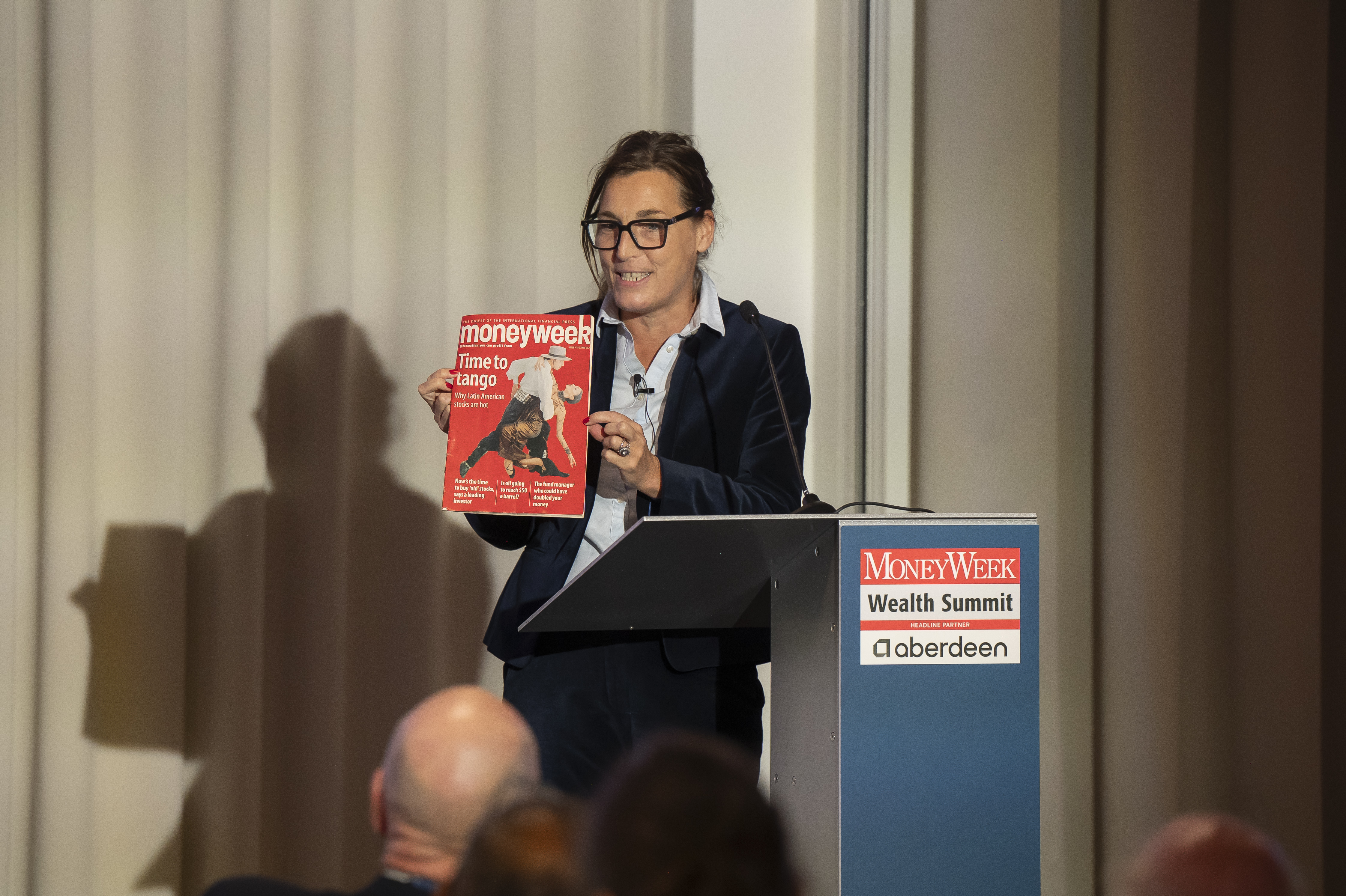
Get the latest financial news, insights and expert analysis from our award-winning MoneyWeek team, to help you understand what really matters when it comes to your finances.
You are now subscribed
Your newsletter sign-up was successful
Want to add more newsletters?

Twice daily
MoneyWeek
Get the latest financial news, insights and expert analysis from our award-winning MoneyWeek team, to help you understand what really matters when it comes to your finances.

Four times a week
Look After My Bills
Sign up to our free money-saving newsletter, filled with the latest news and expert advice to help you find the best tips and deals for managing your bills. Start saving today!
Our annual conference, which this year coincided with the magazine’s 25th birthday, was a roaring success. For those who weren’t there, here is an overview of what you missed. Andrew opened proceedings by noting that the magazine’s quarter-century was bookended by two huge technology booms, while the years in between had seen extraordinary events ranging from a financial crisis to a pandemic.
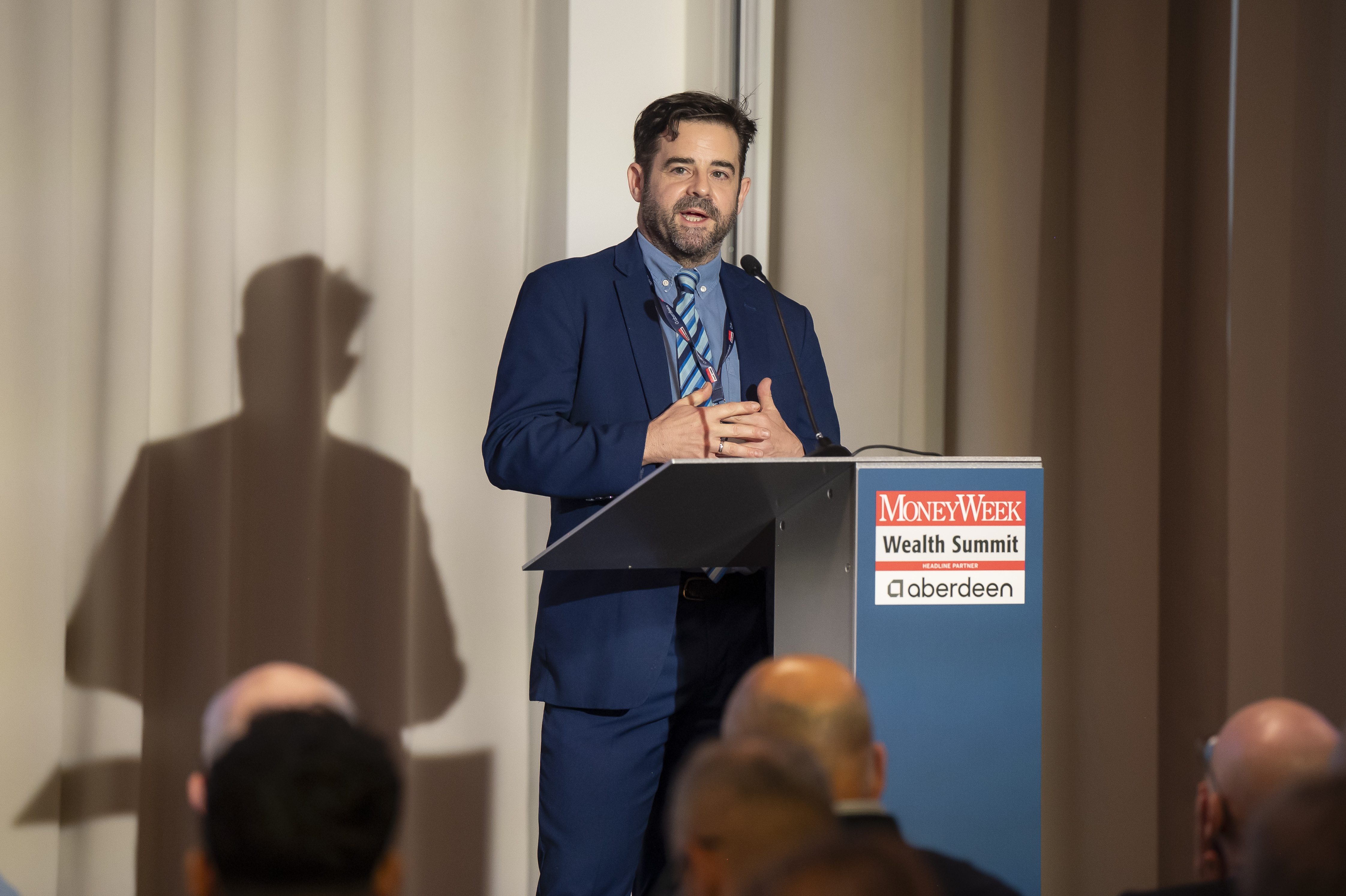
The only thing it hadn’t seen was a normal business cycle, thanks to constant interference in economic cycles and economies by central banks. Calderwood Capital’s Dylan Grice underlined how state meddling was a recurrent theme – well-intentioned efforts to regulate the market only deepened the crises leading to the American and French revolutions. Throw in today’s geopolitical, technological and financial uncertainty, and extreme caution is called for.
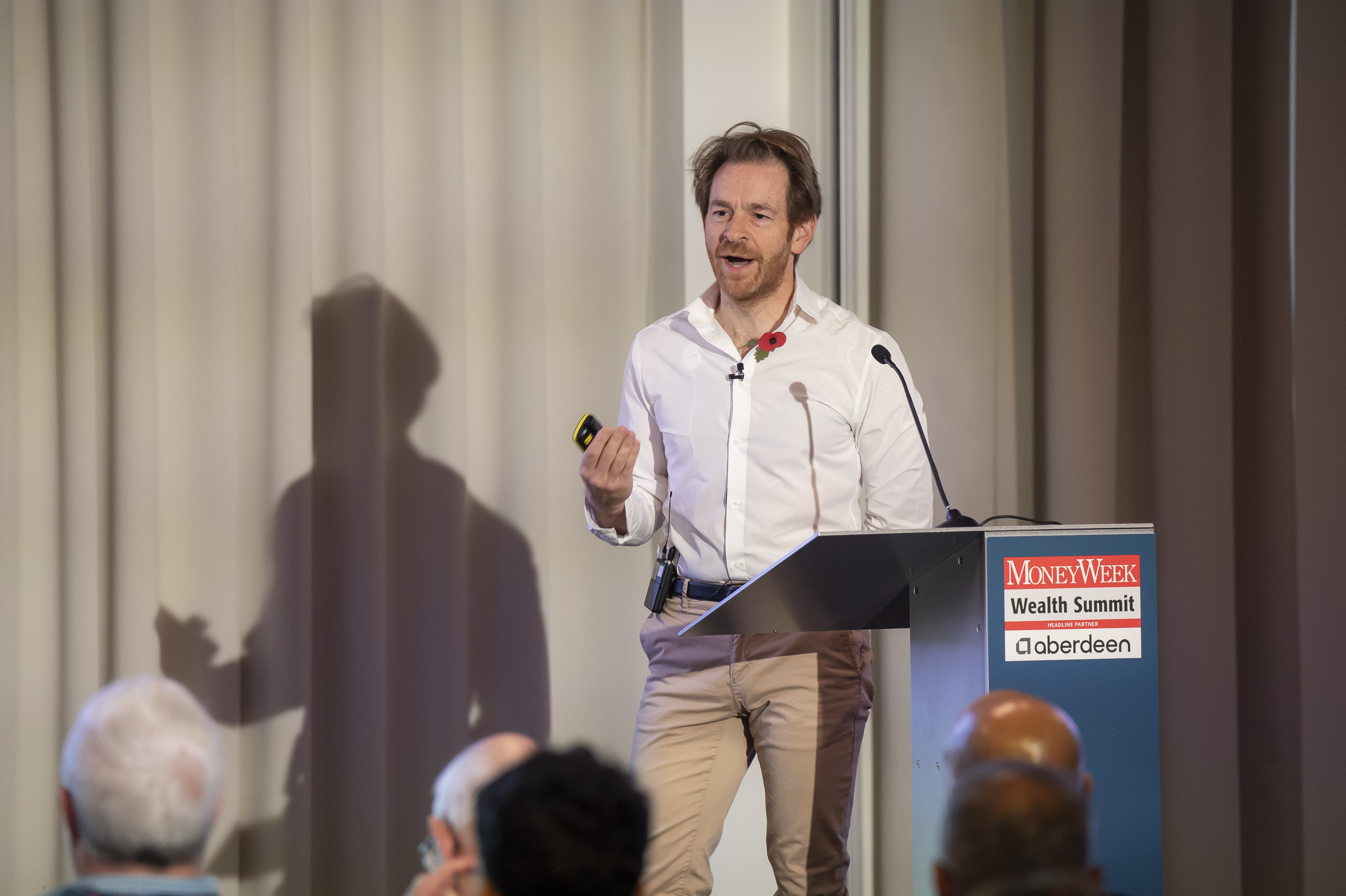
Diversify as follows, he says: construct an equally weighted portfolio comprising equities, commodities, precious metals, real bonds, nominal bonds and securities offering exposure to insurance and reinsurance, such as CAT bonds.
MoneyWeek
Subscribe to MoneyWeek today and get your first six magazine issues absolutely FREE

Sign up to Money Morning
Don't miss the latest investment and personal finances news, market analysis, plus money-saving tips with our free twice-daily newsletter
Don't miss the latest investment and personal finances news, market analysis, plus money-saving tips with our free twice-daily newsletter
The panel following Dylan’s speech, hosted by MoneyWeek’s columnist Rupert Hargreaves of City A.M. and consisting of Jasmine Yeo of Ruffer, Troy Asset Management’s Charlotte Yonge, RIT Capital Partners’ Frank Ducomble and Charlie Morris of ByteTree, highlighted the scope for gold, bitcoin and index-linked bonds to shield investors’ holdings. Charlie said he was convinced that AI is a massive bubble that peaked in late October.
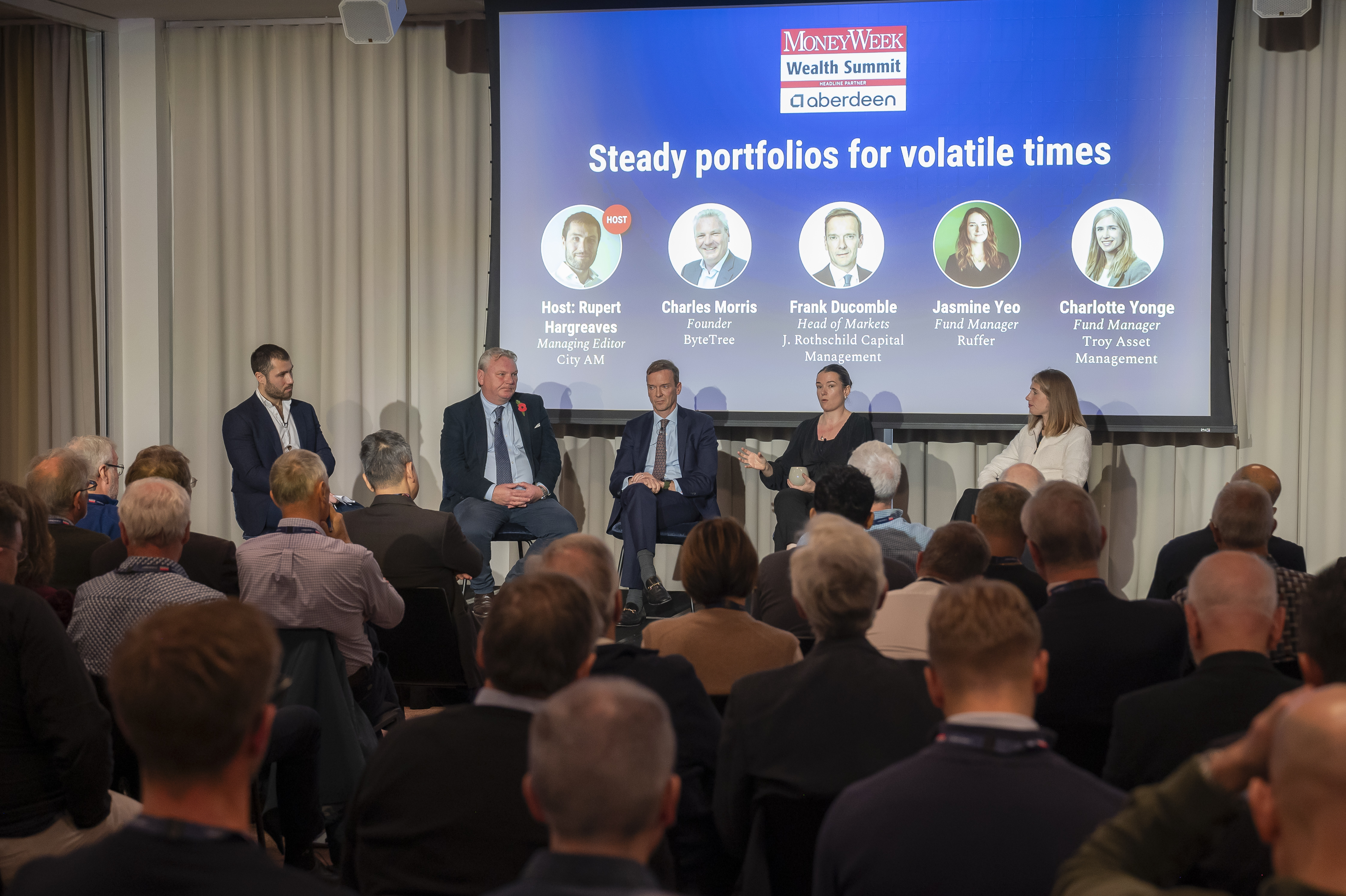
MoneyWeek Wealth Summit highlights
The emphasis then switched to long-term growth opportunities. Enter Vietnam, which has been one of our favourite stock markets since 2005. Dominic Scriven of Dragon Capital says the economy is growing at 7%-8% a year. Exports have moved up the value chain from raw materials to electronics, and consumption is rising. The pro-business Communist government is sacking one million civil servants to make the public sector more efficient.
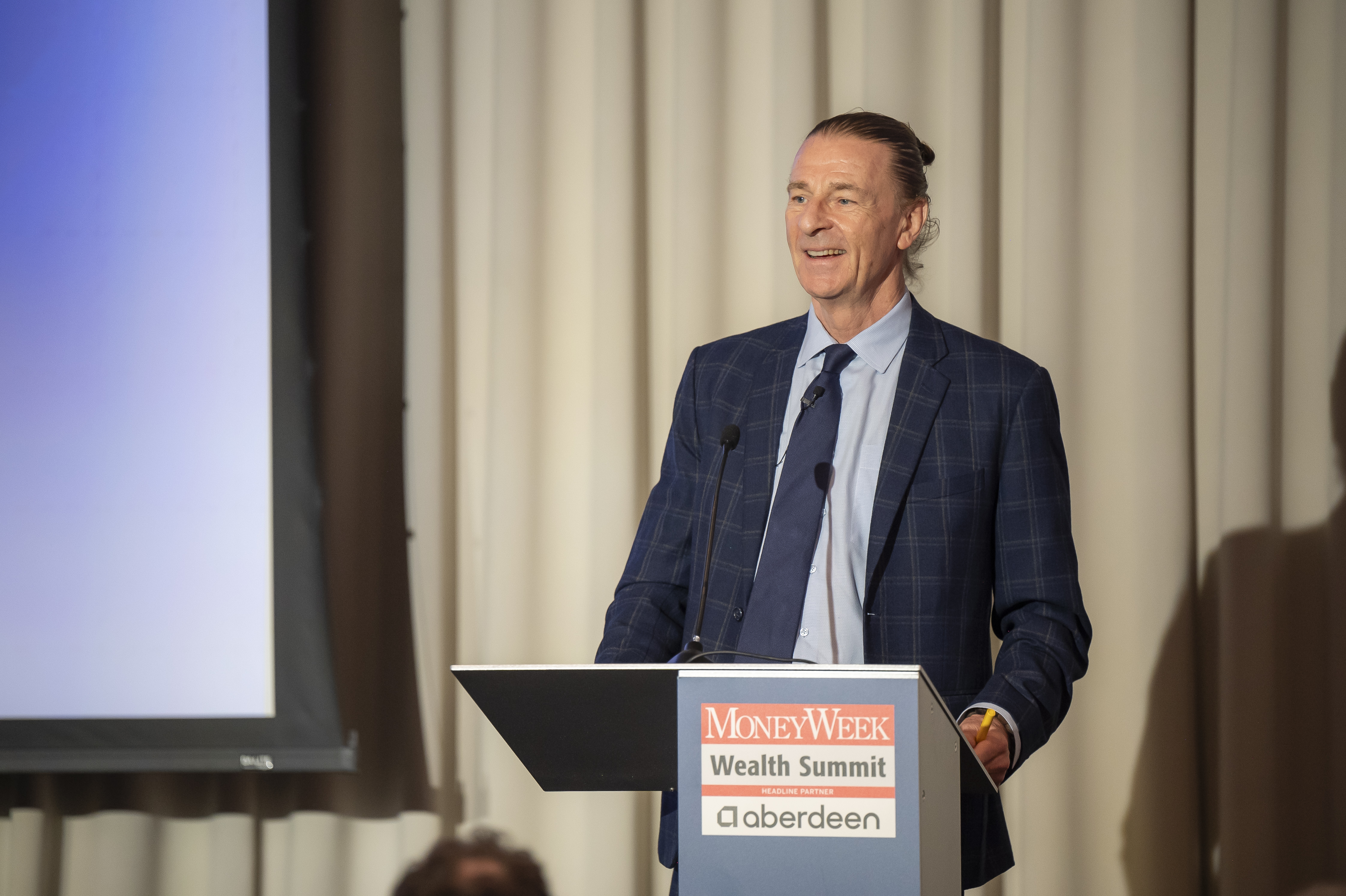
Japan, meanwhile, is making its private sector more efficient. Nicola Takada Wood of AVI reviewed the progress of the campaign to shake up corporate governance and unlock value. AVI has been a key activist investor in the under-researched small-cap segment of the market. There is still room for improvement – a large majority of the firms trading below book value in the market are small caps.
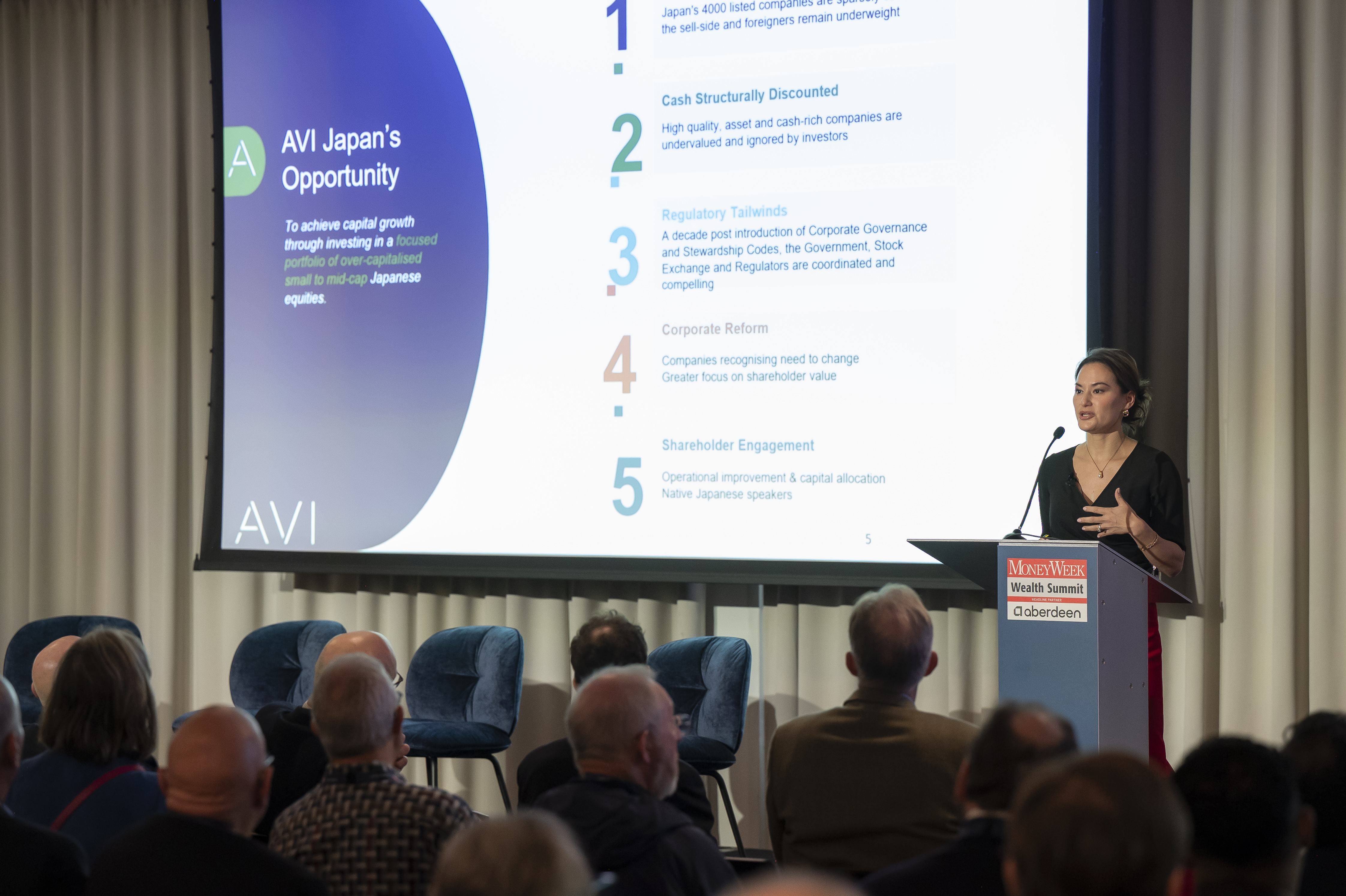
Ben James of Baillie Gifford focused on AI. It is the latest technological revolution in a series that began with the industrial revolution, the last one being information technology. We are in the early phase of the machine era, and a key theme will be robotics, with robots doing manual tasks everywhere. In this context, Aurora, an unmanned truck group, and Tesla’s robots have caught Baillie Gifford’s eye.
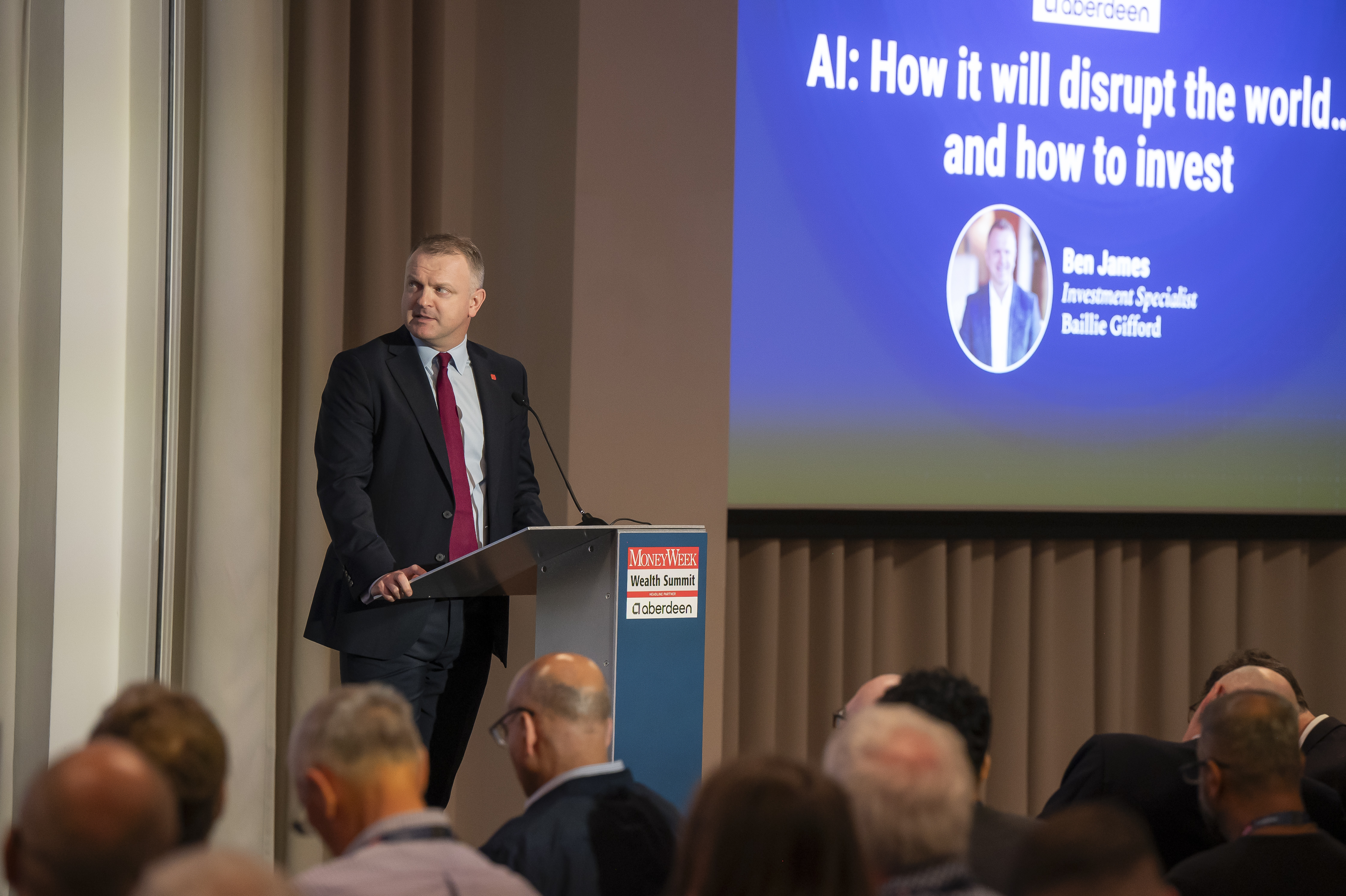
Next we heard from India Capital Growth Fund’s Gaurav Narain. India continues to exhibit robust growth of about 6% a year, powered by a young population’s household spending – the median age is 28. The stock market remains buoyant, too, accounting for a third of flotations worldwide.
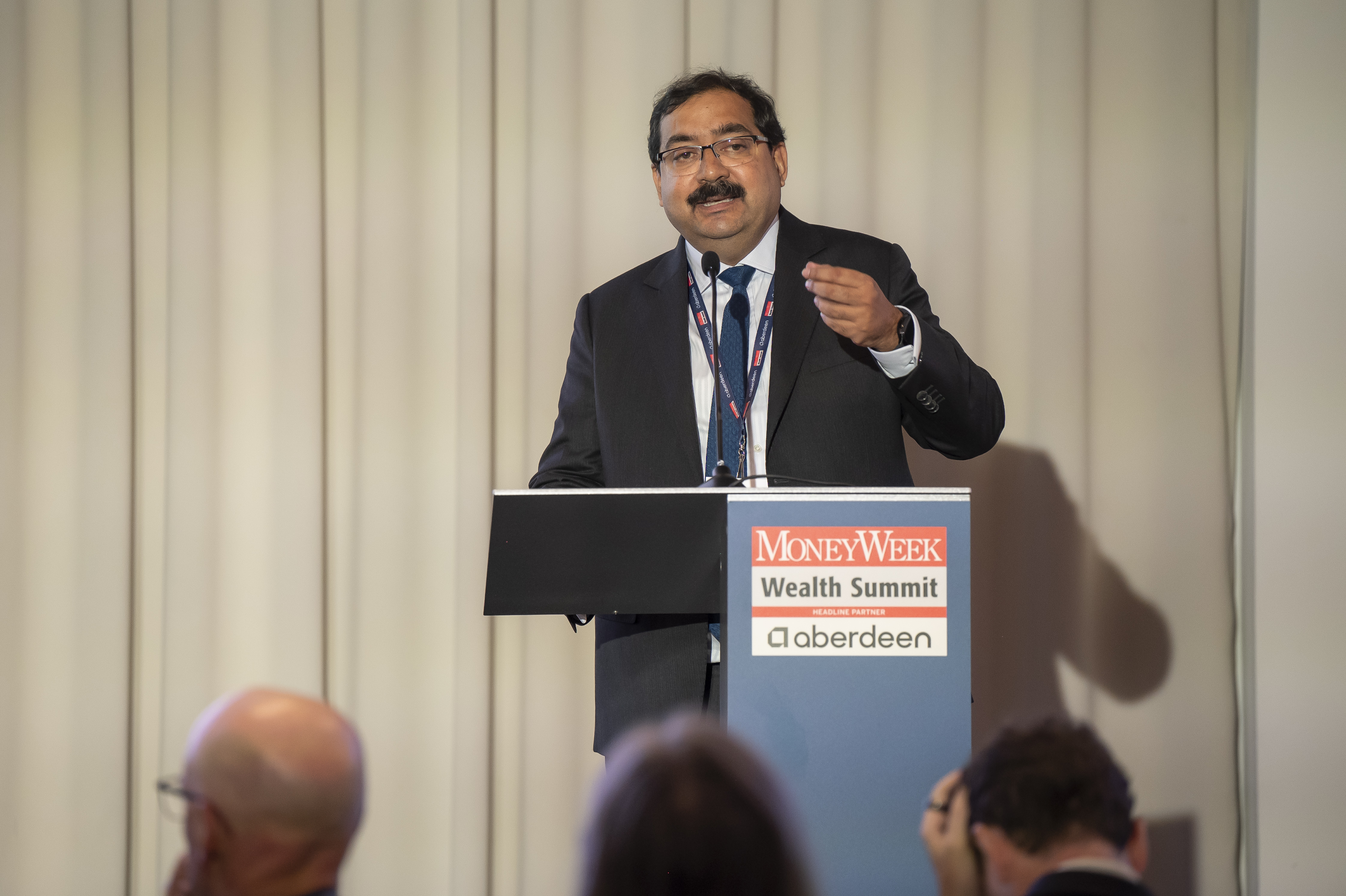
A lunchtime discussion about gold was led by Cris Heaton, who quizzed James Proudlock of OptionsDesk and Erik Norland of CME Group. A snap poll of the audience afterwards was bullish.
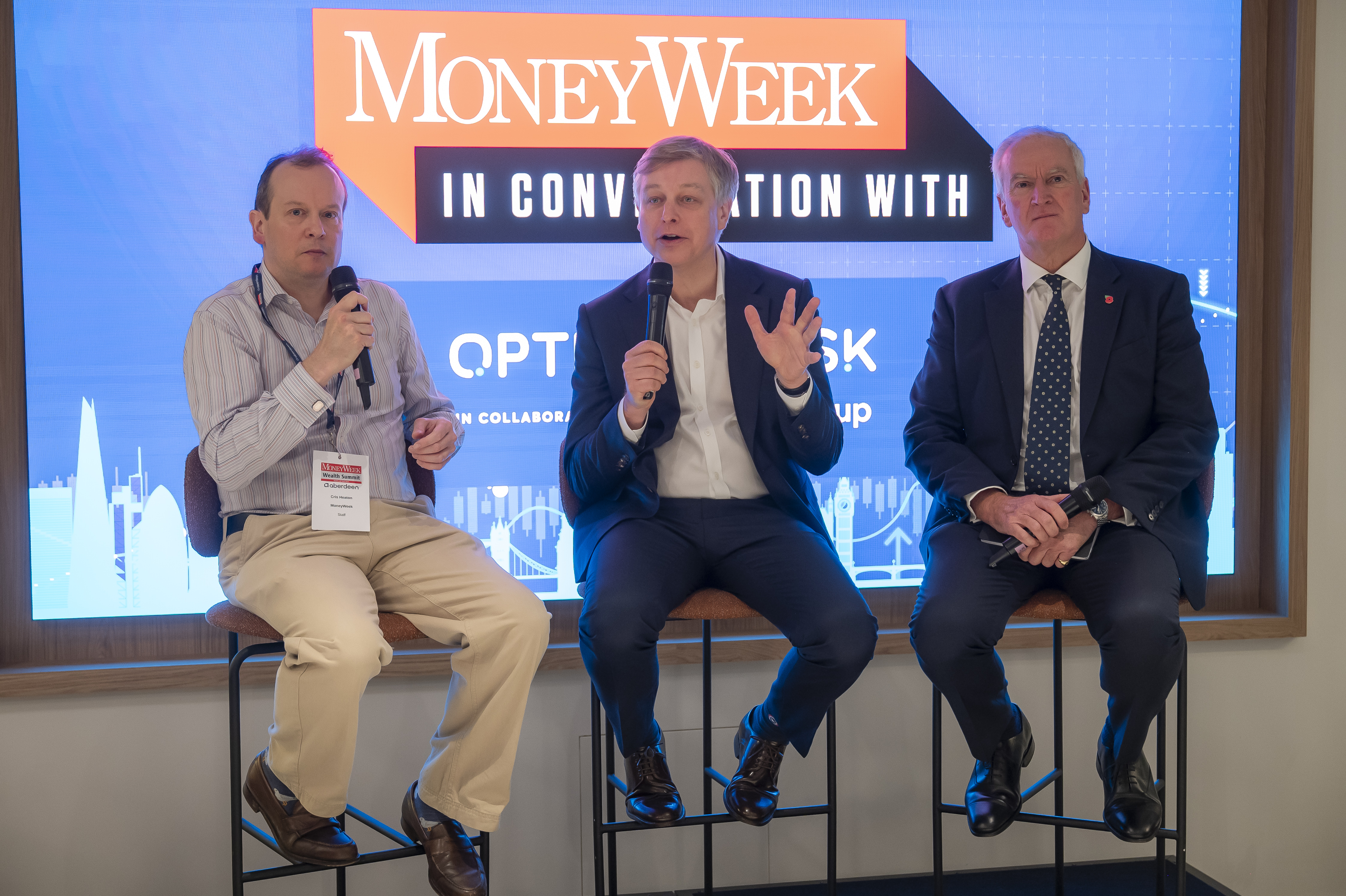
After lunch, our founding editor, Merryn Somerset Webb, now at Bloomberg, reviewed the lessons of MoneyWeek’s 25 years. Two of them were that diversification and mean reversion always matter. And hold gold.
Then Laura Foll of Janus Henderson explored the perennial problem of the British stockmarket withering away, with former MoneyWeek editor John Stepek, also now at Bloomberg. The market’s overall valuation is in line with its long-term average, while small and mid caps still look cheap. Foll highlighted commercial property as an area unlikely to become obsolete as technological advances gather pace.

Diana Choyleva of Enodo Economics has become more positive on China in the past few years. There is scope for a bull market now that the government is trying to encourage people to hold stocks rather than property. Pantheon International’s Charlotte Morris reminded the audience that privately held companies outnumber listed companies threefold, so it is important to have exposure to private equity. The same goes for healthcare, according to James Douglas of Polar Capital. The pace of innovation remains impressive and demand robust – concern over the Trump administration’s capricious health policies has eased and valuations are appealing.

The afternoon panel, focusing on diversifying beyond the US and its AI-driven tech stocks, along with the relative merits of small and large caps, was hosted by MoneyWeek’s columnist David C. Stevenson. David was joined by Martin Connaghan of the Murray International Trust, Simon Barnard of the Smithson Investment Trust and Swathi Seshadri of MCP Emerging Markets. Value lies beyond the US, while Simon Barnard noted that the AI boom may be like the railroad one – more useful to future users than the original investors.

Following Dr Pippa Malmgren’s riveting explanation of how stablecoins could remodel the global financial order, MoneyWeek’s funds columnist, Max King, finished the conference by reminding readers to stay optimistic and recall that sometimes value stocks were cheap for a reason. The FTSE 100 should soon reach 10,000, he said. This week, it is tantalisingly close.
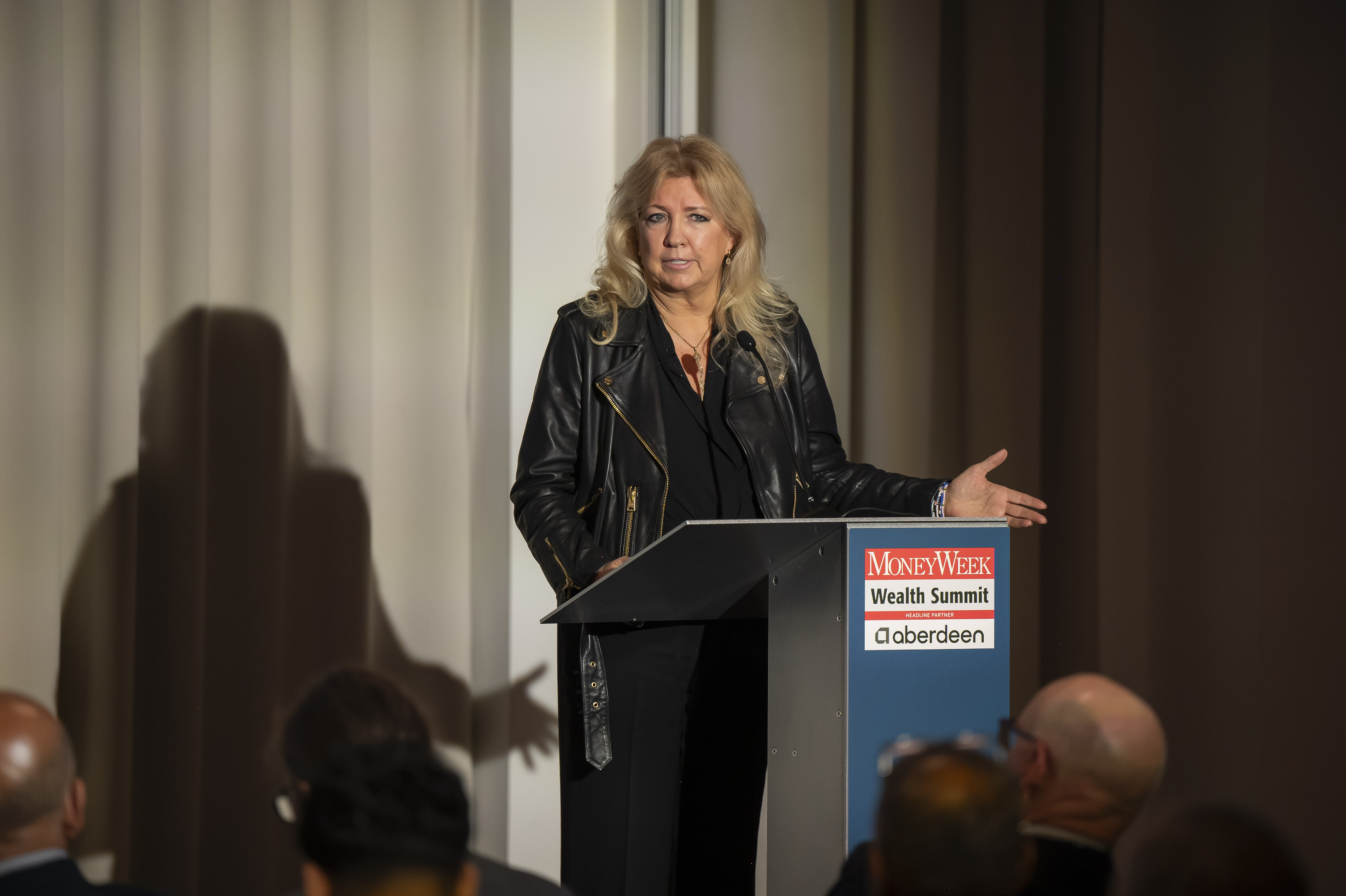
Thank you to our headline partner Aberdeen, event partners India Capital Growth Fund, OptionsDesk, Polar Capital, QuotedData, RIT Capital Partners, Smithson Investment Trust and Vietnam Enterprise Investments; and association partner The Association of Investment Companies for their support.
This article was first published in MoneyWeek's magazine. Enjoy exclusive early access to news, opinion and analysis from our team of financial experts with a MoneyWeek subscription.
Get the latest financial news, insights and expert analysis from our award-winning MoneyWeek team, to help you understand what really matters when it comes to your finances.
MoneyWeek is written by a team of experienced and award-winning journalists, plus expert columnists. As well as daily digital news and features, MoneyWeek also publishes a weekly magazine, covering investing and personal finance. From share tips, pensions, gold to practical investment tips - we provide a round-up to help you make money and keep it.
-
 Should you buy an active ETF?
Should you buy an active ETF?ETFs are often mischaracterised as passive products, but they can be a convenient way to add active management to your portfolio
-
 Power up your pension before 5 April – easy ways to save before the tax year end
Power up your pension before 5 April – easy ways to save before the tax year endWith the end of the tax year looming, pension savers currently have a window to review and maximise what’s going into their retirement funds – we look at how
-
 Three key winners from the AI boom and beyond
Three key winners from the AI boom and beyondJames Harries of the Trojan Global Income Fund picks three promising stocks that transcend the hype of the AI boom
-
 RTX Corporation is a strong player in a growth market
RTX Corporation is a strong player in a growth marketRTX Corporation’s order backlog means investors can look forward to years of rising profits
-
 Profit from MSCI – the backbone of finance
Profit from MSCI – the backbone of financeAs an index provider, MSCI is a key part of the global financial system. Its shares look cheap
-
 'AI is the real deal – it will change our world in more ways than we can imagine'
'AI is the real deal – it will change our world in more ways than we can imagine'Interview Rob Arnott of Research Affiliates talks to Andrew Van Sickle about the AI bubble, the impact of tariffs on inflation and the outlook for gold and China
-
 Should investors join the rush for venture-capital trusts?
Should investors join the rush for venture-capital trusts?Opinion Investors hoping to buy into venture-capital trusts before the end of the tax year may need to move quickly, says David Prosser
-
 Food and drinks giants seek an image makeover – here's what they're doing
Food and drinks giants seek an image makeover – here's what they're doingThe global food and drink industry is having to change pace to retain its famous appeal for defensive investors. Who will be the winners?
-
 Barings Emerging Europe trust bounces back from Russia woes
Barings Emerging Europe trust bounces back from Russia woesBarings Emerging Europe trust has added the Middle East and Africa to its mandate, delivering a strong recovery, says Max King
-
 How a dovish Federal Reserve could affect you
How a dovish Federal Reserve could affect youTrump’s pick for the US Federal Reserve is not so much of a yes-man as his rival, but interest rates will still come down quickly, says Cris Sholto Heaton

